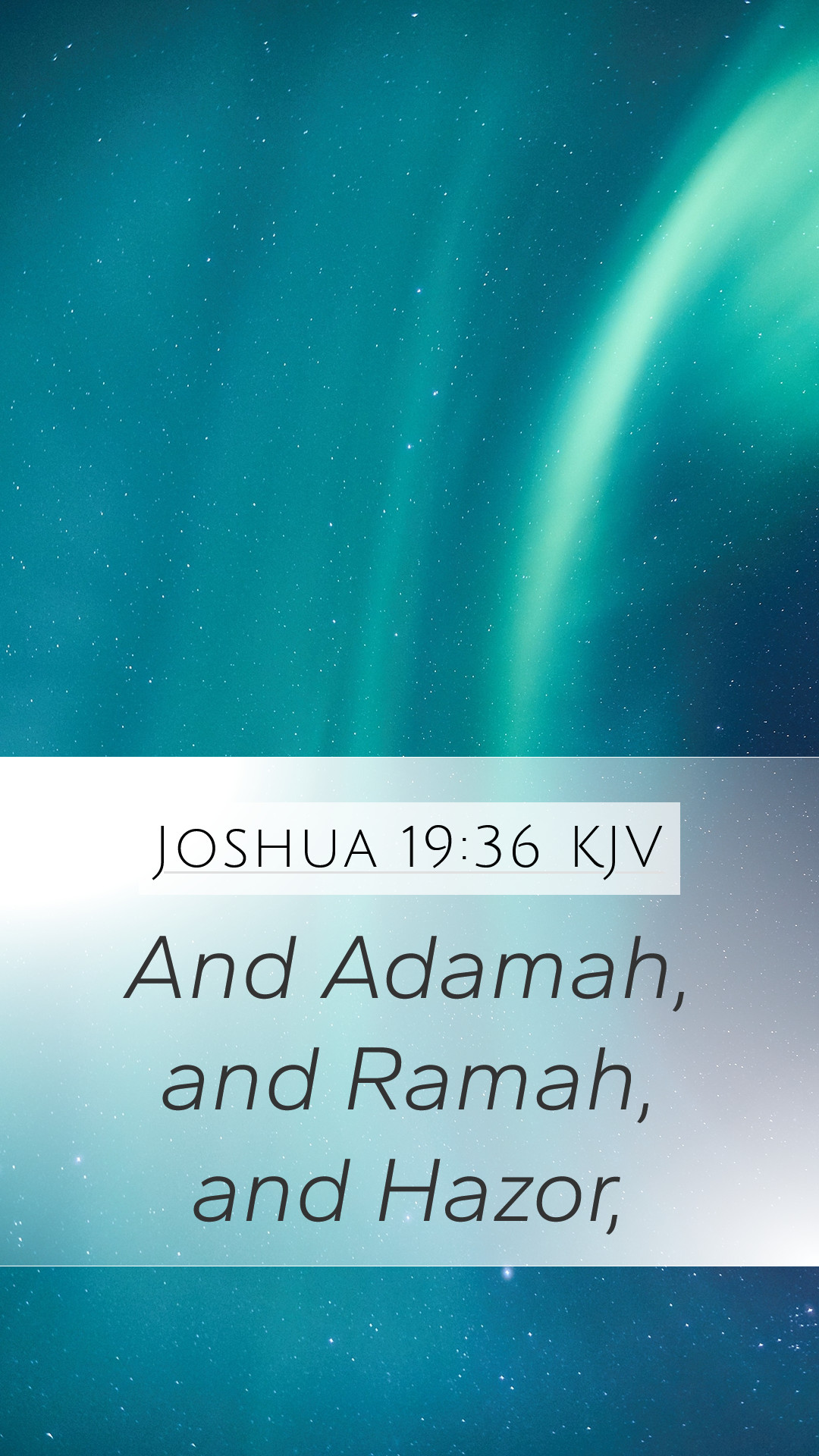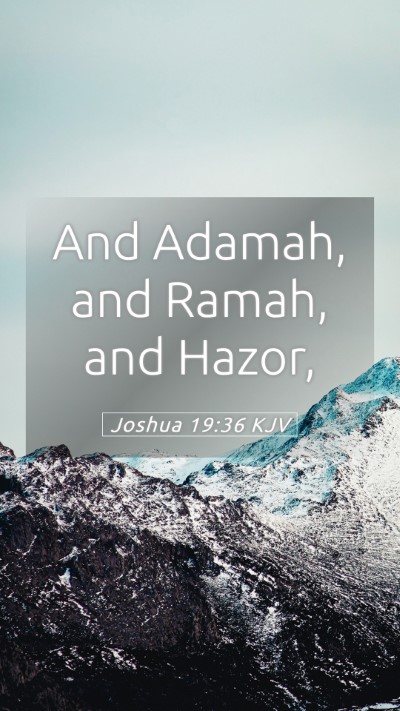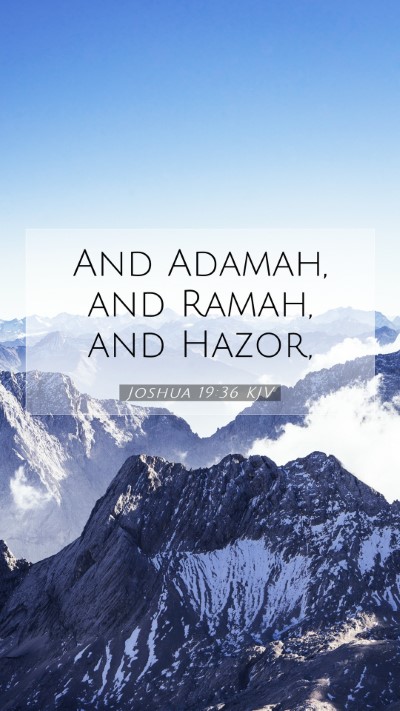Understanding Joshua 19:36
Bible Verse: Joshua 19:36
“And the city of the sun, which is Beth-shemesh, and the town of the sun, which is Shelah, and the cities of the south, which are in the border of Judah, and the city of the sun.”
Summary of Meaning and Context
The verse Joshua 19:36 references the geographical boundaries and cities allocated to the tribe of Dan, highlighting its significance in the land distribution of the Israelites. Understanding this allocation is crucial in studying the organizational structure of the Israelites during their settlement in Canaan.
Bible Verse Commentary
- Matthew Henry's Commentary: Henry emphasizes the divine order in the distribution of the land, highlighting how the towns listed reflect God’s providence in guiding His people. He notes the importance of recognizing the significance of these names, particularly Beth-shemesh, which is translated as “the house of the sun.” This indicates not only a geographical location but also a cultural reference to worship practices during that time.
- Albert Barnes' Notes: Barnes brings attention to the historical context of these cities, framing them within the larger narrative of the Israelites’ conquest and settlement. He points out that the mention of cities like Beth-shemesh serves to connect the heritage of the Israelites while also marking the importance of the land as part of God’s promise to them.
- Adam Clarke's Commentary: Clarke provides an in-depth analysis of the phrase “the city of the sun” indicating its worship implications and the pagan practices that could arise from it. He stresses the need for vigilance and adherence to God’s commandments to prevent idolatry from infiltrating the Israelite community.
Key Themes in Joshua 19:36
The verse reinforces several themes:
- Divine Sovereignty: The careful distribution of land illustrates God’s control and order over His people.
- Historical Formation: The names and locations offer insights into the history of the Israelites and their relationship with neighboring cultures.
- Warning Against Idolatry: It serves as a reminder of the potential for syncretism with local pagan religions, urging the Israelites to remain faithful to God.
Application for Today
Understanding Joshua 19:36 goes beyond historical analysis; it encourages readers to reflect on their own spiritual inheritance and the importance of maintaining a pure devotion to God. Just as the Israelites faced the challenge of remaining faithful amid various cultural influences, modern believers are called to guard their faith in a world full of distractions.
Study Resources and Insights
For those engaging in Bible study, the following resources can be immensely helpful:
- Bible Study Guides: Comprehensive materials that explore the context and meaning of various verses.
- Online Bible Study Platforms: Interactive forums for discussing scriptural interpretations.
- Bible Study Tools: Apps and software aiding in the deeper understanding of Scripture.
Cross References
Joshua 19:36 relates to several other Scripture passages:
- Judges 1:34 - Discusses the challenges faced by the tribe of Dan in securing their territory.
- 1 Samuel 6:9 - Mentions Beth-shemesh in the context of the Ark of the Covenant's return.
- 1 Kings 4:9 - Refers to the administrative organization of the land, including different cities.
Final Thoughts
In conclusion, Joshua 19:36 serves as a rich resource for understanding the organizational and cultural dynamics of ancient Israel. Through careful study and contextual analysis, believers can gain profound insights into their spiritual heritage and the importance of faithfulness amid spiritual challenges.


